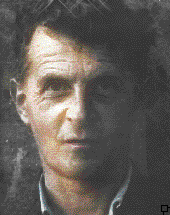
Realism is, in a sense, the natural or pre-philosophical point of view. In its extreme forms it has been given the label ``naive realism'' -- naive, that is, from the point of view of the sceptical philosopher. To the realist it is perfectly natural to speak of the ``discovery'' of the roundness of the earth, of the atomic constitution of matter, of Maxwell's laws, and so on. If one can look into a room and see what is in there, why can't one similarly look into nature? Performing an experiment and opening a door are not essentially different. And as for theoretical knowledge: to a realist there is no sharp distinction between theoretical and experimental knowledge. Maxwell's laws can be confirmed by experiment just as can the existence of atoms, or the curvature of the earth.
Positivism is the sceptical response to realism. The positivist raises doubts about the entities that scientists regularly theorise about (fields, wave functions, particles etc). Such entities have come and gone throughout the history of science -- surely they will continue to do so. How, then, can one ever regard the current favorites as being in any sense true? Tomorrow they will have been replaced by something utterly different. In other words, the standard positivist argument involves making a sharp distinction between data and theory, and then attacking the realist's induction from data to theory: there is no unique theory to explain any finite set of data. Thus we will in principle never be able to say we have ``found the true theory'', since there will always be other theories, perhaps fundamentally different ones, that can explain the same data. Examples of many curves fitting a few data points often crop up here.
Now that language has been mentioned, however, Wittgenstein has a new turn to add to the argument. How do words acquire meaning? Is the sceptic's rampant use of doubt sanctioned by the meaning of the word? Is the possibility of illusion really a ground for making a systematic distinction between our experience of the world and the world itself? Wittgenstein's new idea was that one should look to real language to answer questions about the meaning of words. What is ``doubt''? Look at ordinary (i.e. non-philosophical) language to see how the word is used, and there will be your answer. Carrying out this exercise, Wittgenstein demonstrated exhaustively that many philosophical problems arose from philosophy's redefining words, and then using its own definitions. In the case of ``certainty'' and ``doubt'', for example, it is clear that in ordinary use these words have rough and ready context-dependent criteria for being used. The actual word ``doubt'' in English is not universally applicable: if a child says of his own finger: ``I doubt if that's part of me'', we will correct him. The sceptical philosopher's ``doubt'' is a much stronger word, applicable to anything that cannot be shown, with philosophically absolute certainty, to be true. In this sense it is therefore a different word -- a technical term of philosophy -- ``p-doubt'' say, and the fact that p-doubt is capable of being applied to everything tells one something about the concept of p-doubt, but not a lot about anything else, particularly the existence or otherwise of the world. (Though it might reflect upon it's p-existence.)
Applying a similar kind of argument to the distinction between sense-data and reality, Wittgenstein points out that people learn what a tree is by being shown trees, not tree sense-data. The tree sense-datum is irrelevant (a ``private object'') and does not bear on anything. The possibility of illusion is there, of course, but there are criteria for deciding what constitutes an illusion. These criteria work for most people. Those for whom they fail are called ``mad'' and are widely disregarded. This is how things are!
The conclusion of this Wittgensteinian purge is that philosophy (or at least metaphysics) should take natural language as its starting point, and proceed from there. This eliminates the ornate metaphysics of the past, and in this sense it achieves the goal of logical positivism. Unlike logical positivism, however, it does not eliminate everything else at the same time: no natural language has precedence over any other, and the philosopher has no right to dictate to any of them.
Let us approach the first of our two initial questions: what is the status of scientific knowledge? Does it give us access to reality? As before we can discount the claims of the positivist: his p-doubt is of no relevance to the issue. However we may have a hard time with the realist too. Although science and ordinary language are partially mingled, they are largely separate (there are non-scientists). Words such as ``real'' are ordinary language words (as the realist uses them). It is clear what is meant by ``Unicorns are real'', but what is meant by ``Electrons are real''? It seems to me that the only sensible way to proceed is to take the criteria of ``reality'' in ordinary unscientific language, and apply them unaltered to scientific entities. I.e., something is real if, given a definition of it, you can actually go out and find objects that meet that definition. Now we apply this to scientific objects:
We therefore conclude that since science is essentially a different language from ordinary language, the question of the ``reality'' of its entities does not have a definite answer: it depends on how (e.g. in which language) you define them. Although we have followed Wittgenstein in rejecting the sceptical attack on realism, we have by no means embraced realism. Hence we would say it is absurd to suggest that scientific discoveries might have a bearing on the problem of free will and determinism, the mind-body problem, or any other philosophical dispute [Note 4]. These are questions about ordinary language, not scientific language. Science is not the arbiter of the meanings of the words of ordinary language.